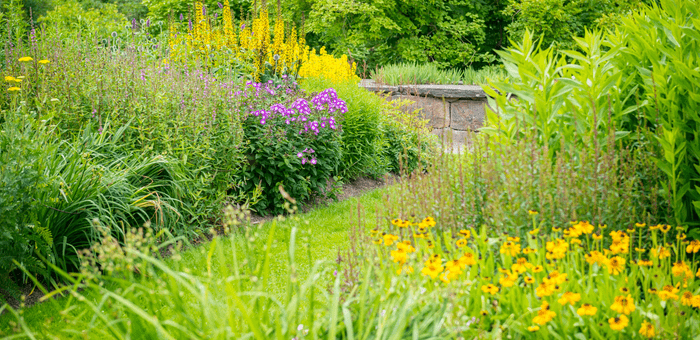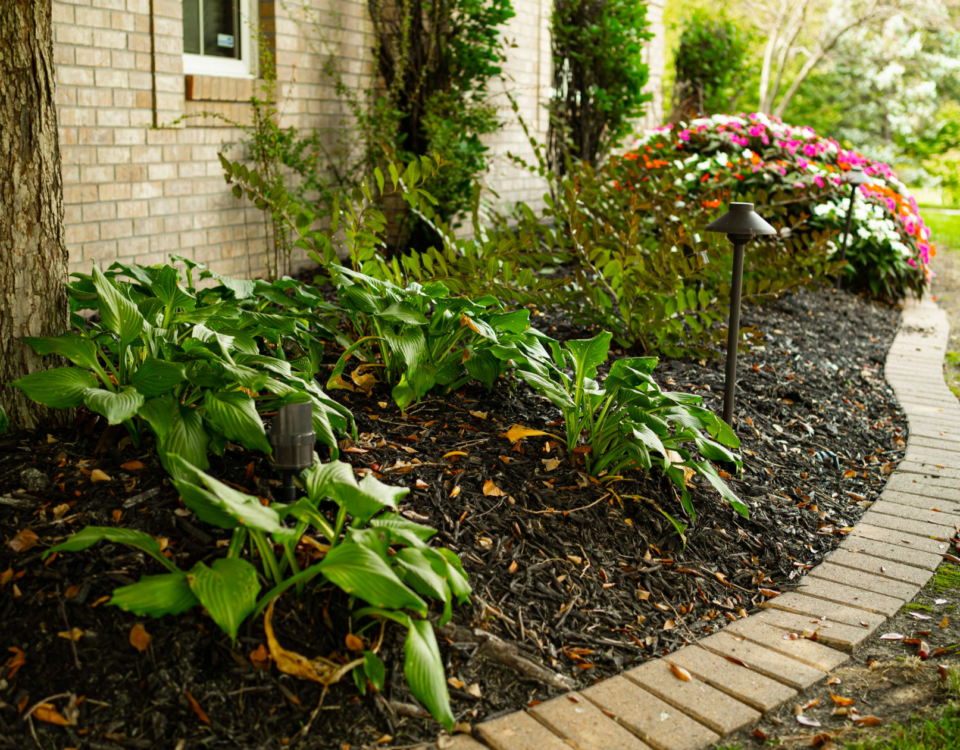
6 Indoor Plants to Help You Beat the Winter Blues
January 13, 2023
Rain Gardens: Nature’s Water Filter
February 10, 2023Fall was a great time to think about preparing your lawn for winter, but it is still not too late! Winter is the perfect opportunity to get ahead and start thinking about all the things leading up to spring. But there are also ways you can care for your lawn during colder months! Here are 8 tips that will set your lawn up for success when warmer weather arrives:
Water your lawn before the ground freezes
One way to keep your lawn healthy during the winter is by watering it before the ground freezes. This will help to insulate the soil in which roots reside and keep it from freezing solid, which can damage your lawn. This is known as “frost heave”—when a lawn is too solidified due in part from not getting enough water or oxygen supply while frozen.
Mow your lawn low
To keep your lawn healthy, it’s important to mow at the right height. Leaving taller grasses to stand throughout the winter can invite rodents and other pests that can do serious damage to your lawn come springtime. Also, shorter blades of grass will be more resistant to frost heave come spring thaw.
Apply a winter fertilizer
A good winter fertilizer will help promote strong root growth so your lawn is better equipped to handle summer heat and drought conditions. It also encourages deep rooting which means that you can get effective weed control as well! Look for one that is low in nitrogen, as too much can actually harm your lawn.
Avoid walking on frozen turfgrass
Frozen turfgrass is much more likely to sustain damage than unfrozen grass, so try to avoid walking or driving on it whenever possible. If you must, try to walk or drive on lawn areas that have been well-fertilized and mulched.
Inspect lawn drains and gutters
It’s important to know that winter is a great time to inspect things like lawn drainage outlets. You’ll want to make sure they are clear of debris, especially when we get our first big snowfall! Debris can cause water overflow which could damage your lawn or even flood areas around your home.
Remove or mulch any fallen leaves
Leaves are a major contributor to lawn problems in the autumn and winter, so it’s important to remove them as soon as possible. Not only do they create an ugly mess, but they can also cause lawn fungus or rot. Try using a rake, blower or leaf vacuum to get the job done quickly and easily. If they are not too wet, consider mulching the leaves with your lawnmower—this could save you time.
Avoid salt damage
Salt damage can result from using salt to melt ice on walks and driveways, but it’s important to know that there are other ways you could be causing this. If your lawn is situated near a road or sidewalk that may get salted in the winter, make sure not to apply any fertilizers containing nitrogen as they will increase your lawn’s susceptibility to chloride injury. Choosing calcium chloride as an alternative can help keep these areas looking healthy and beautiful!
Use anti-desiccant spray
Since we live in an area where winter weather is particularly harsh, you may want to consider using an anti-desiccant spray. While anti-desiccant spray isn’t recommended for your lawn in Omaha, SunCo recommends anti-desiccants for your evergreens, conifers, and shrubs. These plants are especially at risk during the winter as water evaporates from their foliage faster than the roots can absorb it. Anti-desiccants create an impermeable film on trees and shrubs to help them retain water. Plus, these products are biodegradable so they’re safe for the environment too! Schedule this service for your trees and shrubs today!
As you can see, there are many things you can do to help your lawn stay healthy during the winter. By following these tips, your lawn will be in great shape come springtime and ready for all that warmer weather has to offer! For more information, be sure to check out our website further.





